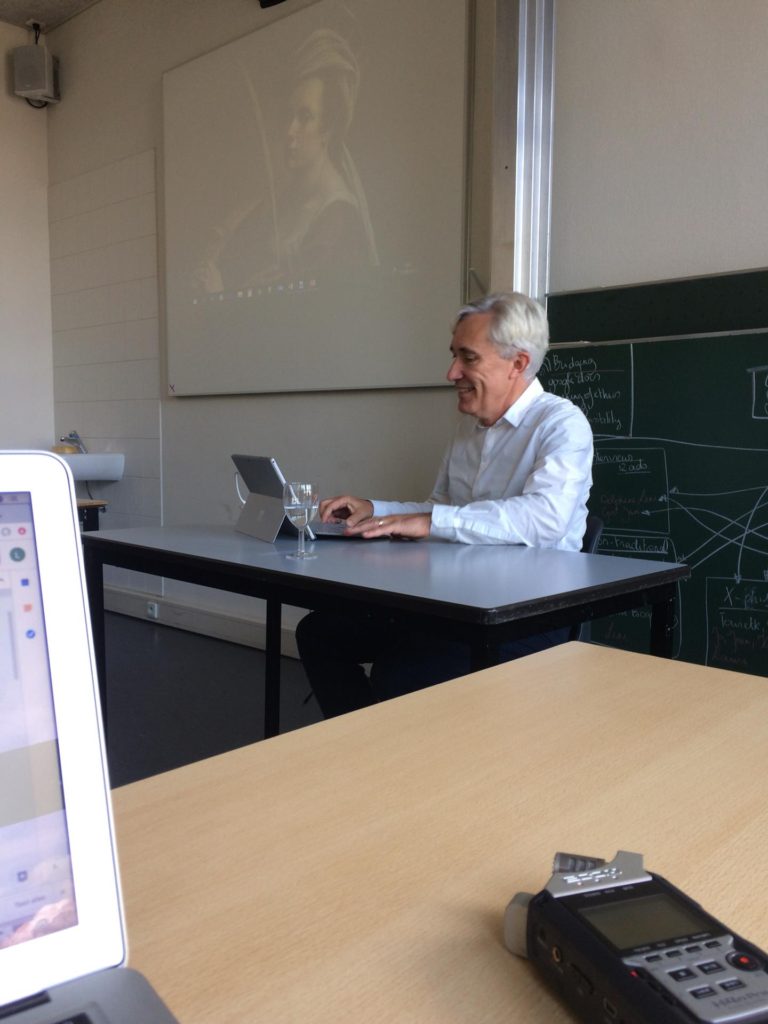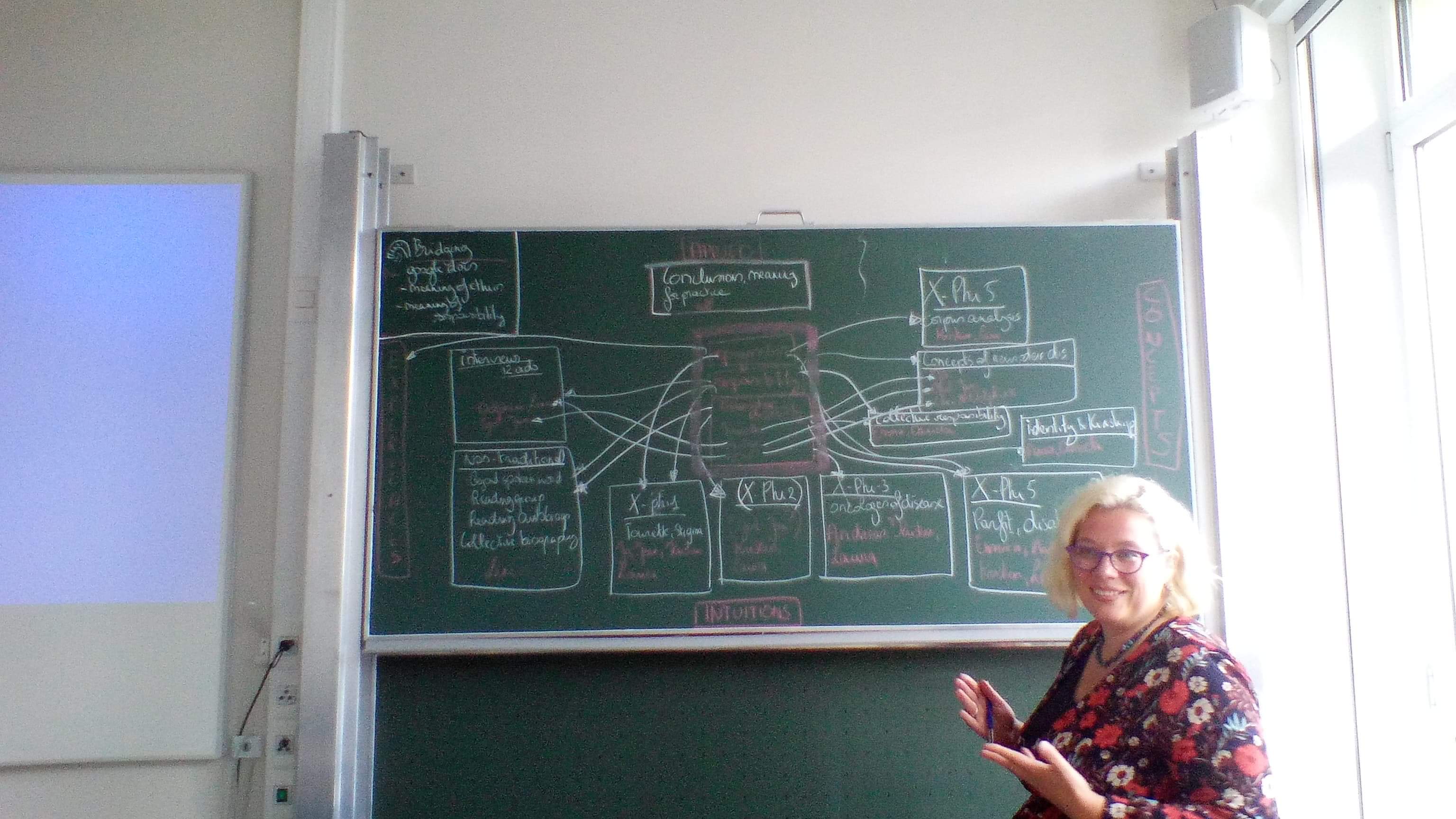On the 12th and 13th September, the NeuroEpigenEthics team came together in Antwerp. It was a truly unique experience of interdisciplinarity. Analytic philosophy met with Deleuze. Qualitative research met with experimental philosophy. Scientific research met with clinical practice. All this was made possible by team members along with invited scholars sharing a spirit of openness and a dedication to create insights with practical relevance in autism, ADHD and Tourette Syndrome. Below we give an overview of the entanglements our team will follow up on in the next years.
The first day started with Kristien Hens (see picture) presenting the original motivation for the ERC project. The two words that best describe the project and the team meeting were: dynamic and experience. This implies a radical openness to interdisciplinarity and a break from approaches that reduce questions of responsibility to predictions of the future based on static models (for instance of functioning labels). The 2 PhD researchers of the project, Jo Bervoets and Emma Moormann (see picture), presented their research questions within this scope. Jo will focus on Tourette, challenging received opinion it is a deficit of inhibition so as to come to a more nuanced view of it. Emma investigates how epigenetics might break open debates on the relation between individual and collective responsibility.
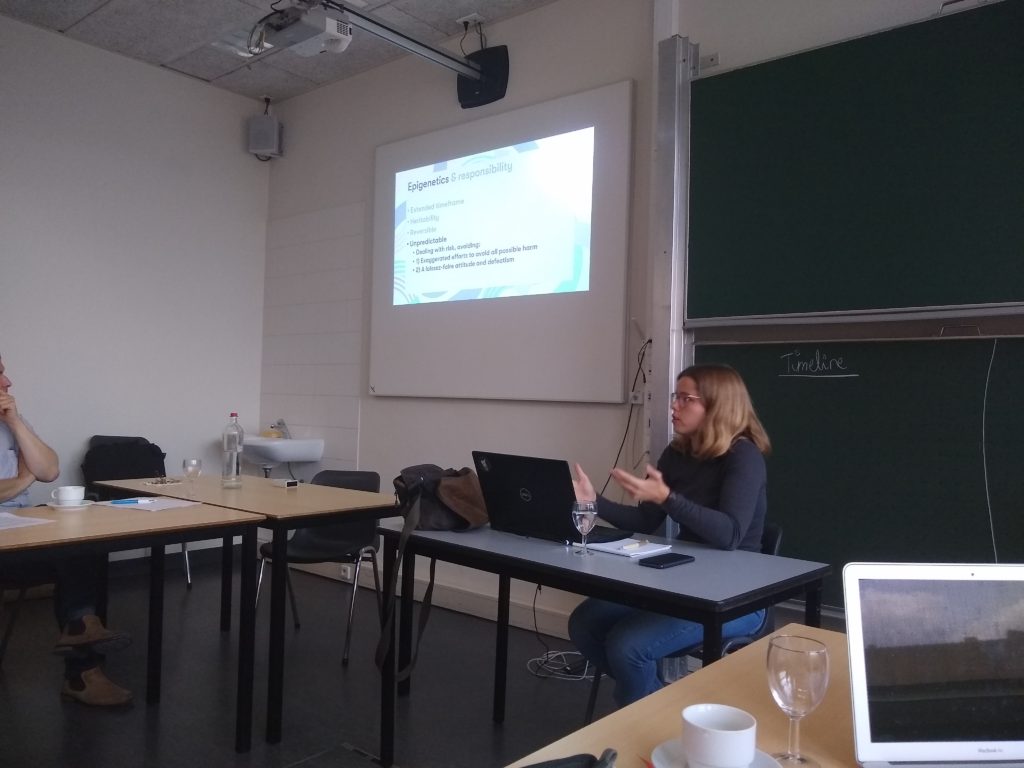
The presentation of Daniela Cutas (virtual, see picture) showed how her ongoing research is already critical of individualistic bias in analytic accounts of responsibility. Together with the rest of the team, she will work on the theme of epigenetics and responsibility, ensuring a better understanding of the right to an open future also for children with a diagnosis. Anna Smajdor’s focus of reproductive ethics will be a key element in this debate. She has shown that bioethics takes as too self evident that the pregnant mother bears all the focus of talk of reproductive responsibility.This tendency might be exacerbated in epigenetics if insufficient attention is paid to a more balanced understanding of responsibilities.
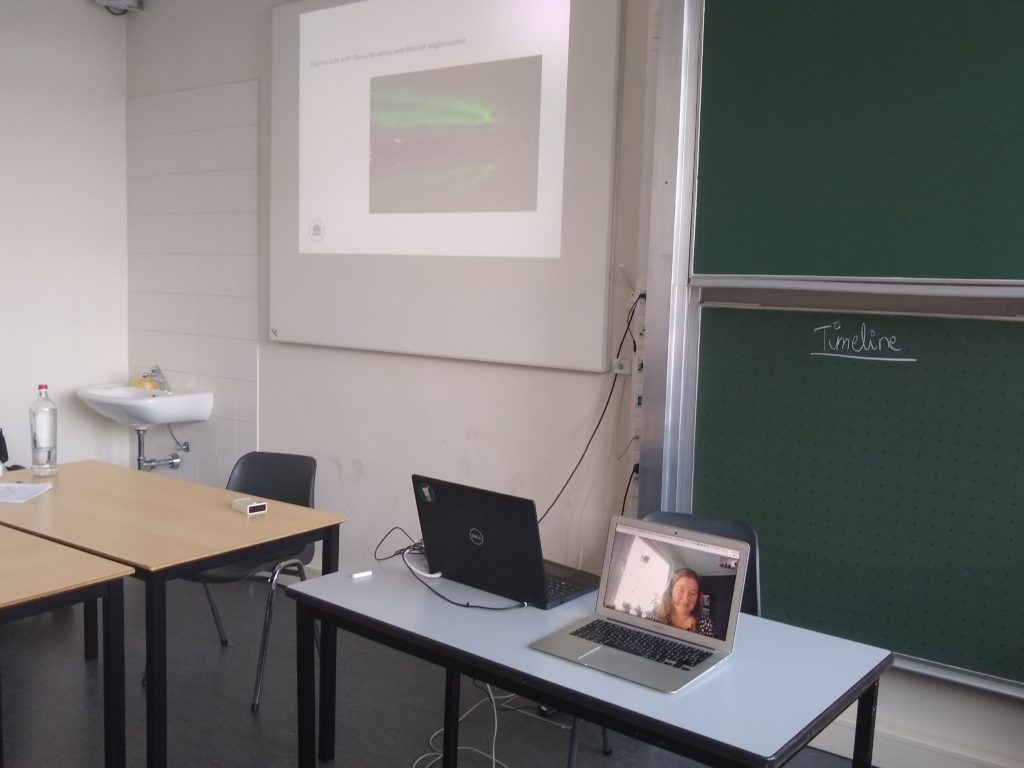
After a brainstorm we allowed ourselves some R(est) & R(ecreation), see picture, showing Andreas De Block (on the right in the back) who will focus on our experimental philosophy (X-Phi) initiatives. They allow us to avoid ivory tower approaches to analytic philosophy by tying into the ethical intuitions of the general public.
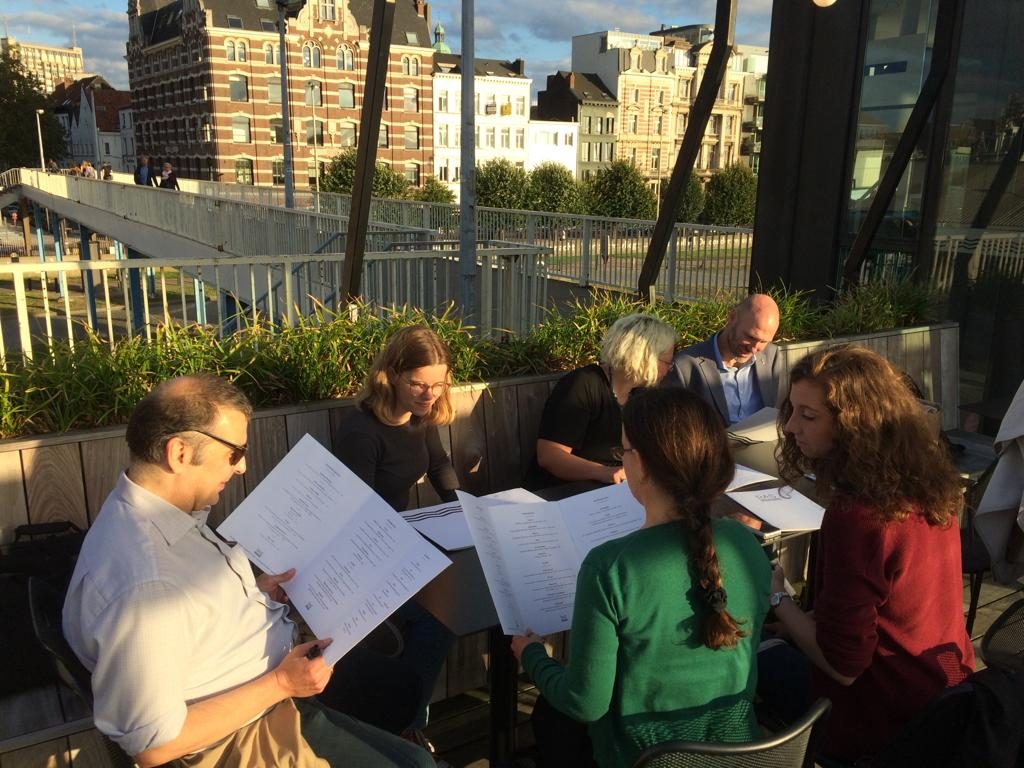
The second day of our meeting focused on the lived experience of those diagnosed. It highlighted the importance of qualitative research alongside quantitative research (which is traditionally viewed as the pinnacle of experimental research). With the focus on (post)qualitative research philosophical references switched from analytic to continental philosophy (and poststructuralist thinking) opening up debates on what we understand as ethical across these traditions. Without any doubt bridging between the terminology used in these traditions will be a key innovation of our our project.
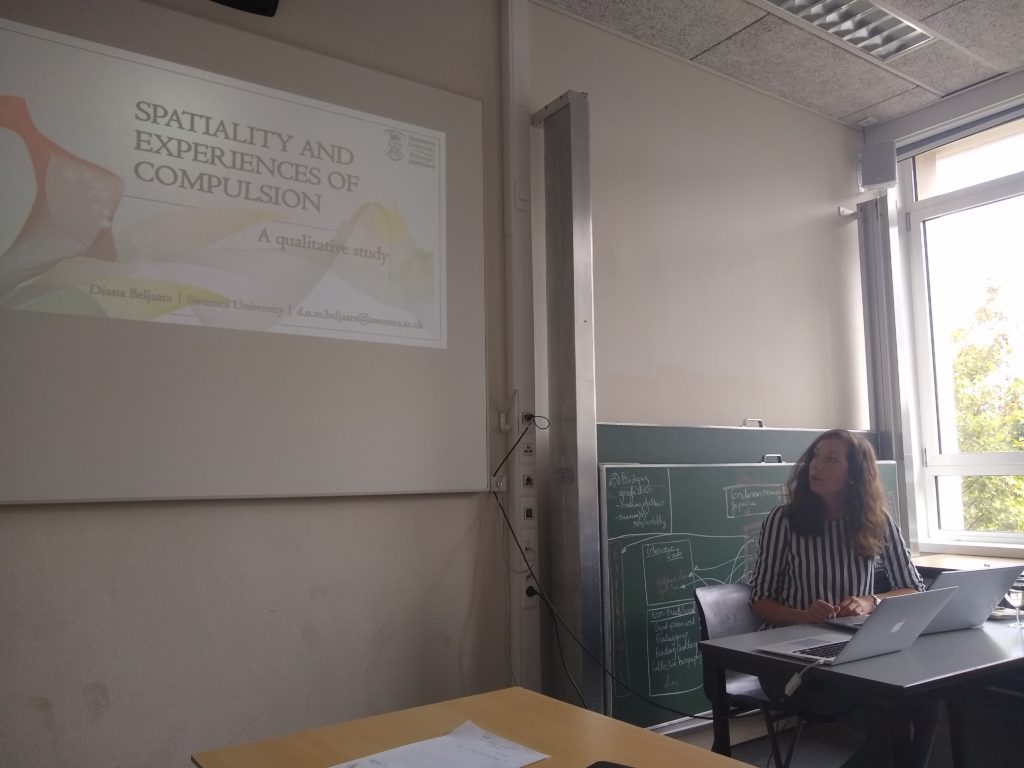
Leni Van Goidsenhoven, a postdoc on this project, presented how she would continue her research into the multiple and dynamic layers of meaning of a diagnostic label. Leni will be working out new methodologies in qualitative research focusing on both individual as well as shared ways of meaning-making, for instance in listening beyond the spoken word. She invited two other qualitative researchers to show the potential of such methodologies. Inge Van de Putte (UGent) reported on her PhD investigating programs for inclusion of children previously sent to special education initiatives. She showed how a diffractive reading of an experience leads to a more creative and empowering, non-binary and inclusive, narrative. Diana Beljaars (USwansea, see picture) presented her research on compulsion in context of Tourette Syndrome. In literally showing entanglements between perceptual experience (via eye tracking) and verbal reports she showed how compulsion is a very human feeling of just-rightness between human and non-human elements.
The final presentation in the team meeting was made by dr. Jean Steyaert from a clinical angle – specifically a child psychiatric one. Jean presented the ongoing PhD research of Gert-Jan Vanaken (absent because he was presenting his research at the Autism Europe conference) with a focus on the ethics of early detection of autism. This work alongside Jean’s experience in clinical practice raised some key questions like: ‘how life-long is a life-long condition (given research shows ADHD diagnosis are not stable over a lifetime?’, ‘Have autism researchers forgotten autistic children with intellectual disabilities and if so, how does that affect their thinking about autism?’, and, ‘do researchers in general tend to homogenize intrinsically heterogeneous ‘disorders’?’.
While we do not have readymade answers to these questions, this reminds us that the end goal of the project is to answer such questions, mainly with a view of making life better for those diagnosed with a neurodevelopmental ‘disorder’. As a gentle reminder of this we will close this report with a picture of Jean presenting a slide on a new buzzword: ‘vulnerability’ (one which may make us, even more, vulnerable to closing future possibilities). Watch this space as we try to be dynamic in developing answers in the spirit of openness.
